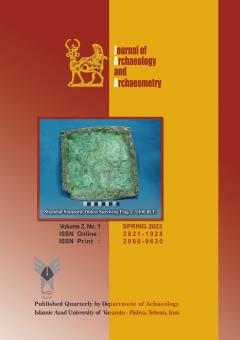Dakkatol-Qada in the Mosque of Kufa from an Ancient Point of View and Judging at the Beginning of Islam “Looking at the Judicial Jurisprudence of Ayatollah Mousavi Ardabili”
Subject Areas : ArchaeologyZahra Ahmadi Afzadi 1 * , Mohamad Sadegh Elmi Sola 2 , Hosein NaseriMoghadam 3
1 - Department of Jurisprudence and Fundamentals of Islamic Law, Payam Nur
University, Tehran, Iran
2 - Department of Jurisprudence and Fundamentals of Islamic Law, Faculty of
Theology, Ferdowsi University of Mashhad, Mashhad, Iran
3 - Department of Jurisprudence and Fundamentals of Islamic Law, Faculty of
Theology, Ferdowsi University of Mashhad, Mashhad, Iran
Keywords: Dakkatol-Qada, Kufa Mosque, the Rules of Mosques, Judicial Jurisprudence, Ayatollah Mousavi Ardabili,
Abstract :
Dakkato al-Qadaa is a place in the Kufa mosque where, according to historical narration, Hazrat Ali (pbuh) used to judge and many of his judgments were narrated in this place. The study of this place is important in terms of the role that mosques have played in various aspects of the spiritual and material life of Muslims. This place can be researched in several ways: the historical reference of the place; the ancient aspect of the remaining signs; Jurisprudential rulings related to judgment in the mosque. According to the studies that were carried out, such a place definitely existed in the history of Islam, and even now there are signs of it in the mosque of Kufa, which is honored and celebrated by the Shiites of the Prophet, which is one of the characteristics of The richness of Islamic civilization is in terms of judicial functions. The knowledge of this specific place depends on the knowledge of the mosque of Kufa on the one hand and the examination of the place of mosques in the Islamic culture and civilization and how proceedings were conducted in the early ages of Islam. This article is organized with a descriptive and analytical method using the remaining written documents and physical works available in the place.

